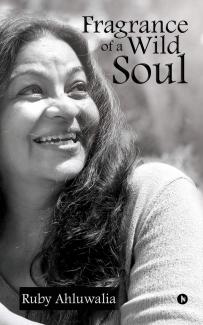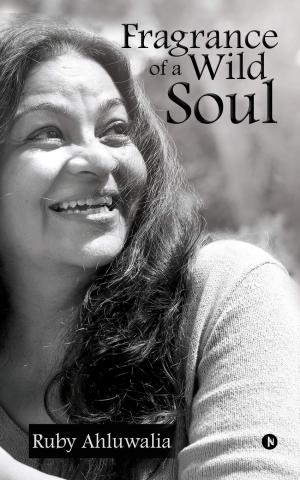
Rama Sivaram, a breast cancer survivor and now a passionate patient advocate reviews Ruby Ahluwalia;s book - Fragrance of a Wild Soul
Ruby Ahluwalia tells her story simply. Revisiting childhood and transitioning into woman, she reviews her life, stringing events that were on the surface routine but which in reality were her fountainhead of the person she is. Somewhere, at a critical point of time she realized while events were gone the memories remain, some good and some not so good. It gave her a niggling feeling that these very memories could be controlling her different selves to become what she is. Given a leisurely break from normalcy Ruby’s cancer journey took her not only through the Big C but also through the looking glass of her memories.
Fragrance of a Wild Soul, is an expression of self-exploration to self-help, accept and move on towards something more fulfilling, not always tangible. It is self-help and a guide to self-help. The style is a mix of open questioning and dialogue between the author and her reader. It narrates events and worldview with their own purpose, consequences and what they taught her. Revisiting memories is essential for growth to make changes and to listen to your voice. Memories teach. The book os185 pages of easy reading. One can connect with it. Yes, it is a good read.
The writer’s prologue- the fable of the tying and untying of the camel - is a metaphor for the invisible knots we tie ourselves in. She writes, letting ourselves free is the biggest favour we can do to ourselves. The intention at the very beginning of the book is a subtle persuasion to the fragrance of a wild soul?
The writer is juggling between 2 worlds – the childhood and adult worlds. One that is seemingly and imaginary make-believe world, which is real to the child of course and another in the midst of an adult world in sleepy little towns, carrying their own burdened characters. Her memories are like montages from a film in Ruby’s mind which she pours into the pages of her book with moments of smiles, despair, acceptance, lessons and homilies to self help.
Ruby makes a matter of fact comment on her professional and personal life, of some highs and lows, routine monotony of set beliefs, behaviours, expectations, demands and identity, a struggle of a trapped being. The much-forbidden Big C appeared with all the pent ups into one clump. I have Breast cancer narrative, traverses the journey- diagnosed, subjected to treatments that dismember, cause a vortex of side effects and dry you up- to cure you and make you well again. The author reflects on small things, searches for meanings like safe space, which later becomes meaningful in Sanjeevani, Life beyond Cancer.
The movement towards Satori or enlightenment is depicted as a series of paintings reflecting the transformative phases in the author’s self in the cancer journey from-physical catharsis of pain that finally expressed all the inner clutter towards Satori or Kensho or the fragrance of a wild soul in freeing ourselves.
The book achieves its purpose through a leisurely read into a mix of autobiography, story and self-help. We all have our own cancers, even if they have not become cancer yet. Maybe, life’s lessons unfold our purpose. Ruby found her purpose in Sanjeevani. Perhaps, we will all experience our own.







